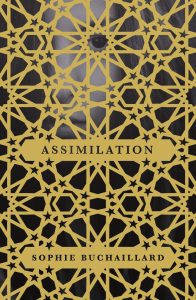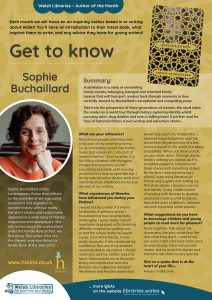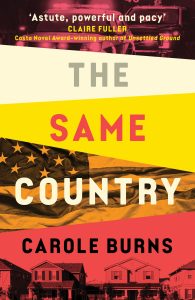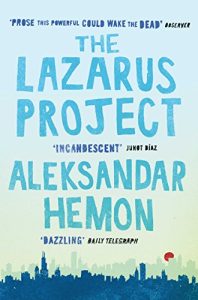Sophie Buchaillard
February 1, 2024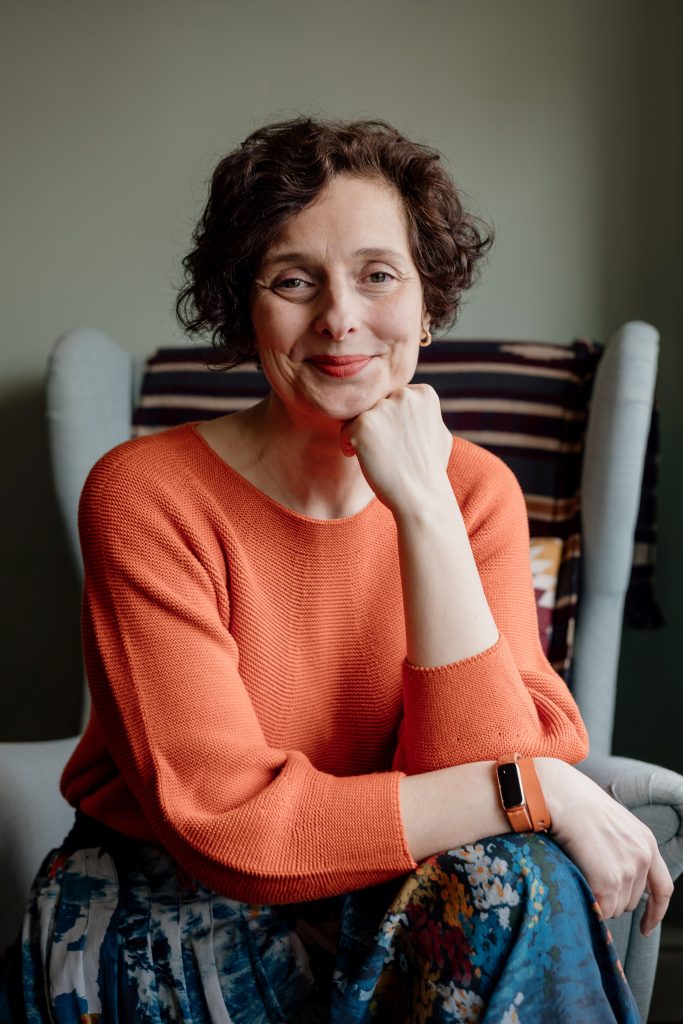
Sophie Buchaillard writes contemporary fiction that reflects on the anxieties of our age, using movement and migration to connect history with our reality. Her short stories and essays have appeared in a wide array of literary magazines and newspapers. She also writes about the environment under the handle #plasticfree. Her first novel, This is Not Who We Are (Seren), was shortlisted for Wales Book of the Year 2023.
Her second novel, Assimilation, is one family’s story set against the backdrop of some of the biggest political and humanitarian events of the century. It’s a tale of unravelling family secrets, belonging, betrayal and inherited trauma, and will transport readers in time and place through one family’s history and struggle.
Charlotte, young and fiercely independent, desperately needs to escape the confines of her mother, Marianne’s expectations and a dreadful trauma. She leaves France and arrives in Wales, hoping to find peace and somewhere to rebuild her life. Marianne, a mother with a colourful past, keeping a terrible secret, tries her best to conform to French middle class expectations.
In this stunning new novel, Buchaillard takes us on an adventure pursuing spies, drug dealers and even a talking bear!
“Beautifully written, stunningly observed. A vivid and confronting book” – Rebecca Parfitt – Commissioning Editor, Honno.
Many congratulations Sophie on the publishing of Assimilation with Honno Press, we can’t wait to read it!
Tell us a little about your background – upbringing, education…
I grew up in Paris and although I have lived in Wales longer than France, I am acutely aware of my place as a migrant, especially with all the recent toxic rhetoric.
My first degree was in political science. I worked as an education and environmental campaigner and in the Higher Education sector where I championed gender parity and inclusivity. In my early 40s I decided to return to university to study creative writing and completed an MA and a PhD. Alongside, I dedicated serious time to writing and published my first novel This is Not Who We Are, which was shortlisted for the Wales book of the Year. That was an incredible accolade for someone who had always wanted to be a writer but lacked the confidence. Today, I teach creative writing at Cardiff University and in a variety of community set ups and I am very passionate about empowering people to find their voice. There is something magical about watching someone grow confident that yes, they too can be a writer.
What influences and memories stand out from your childhood?
I had a very international upbringing. Both my parents were born in Morocco, spoke several languages and travelled and lived abroad extensively. The rest of my family was scattered from Cameroon to the Azores islands, and we only gathered once a year for Christmas. My mother also invited a friend from Colombia who was too far from home to be with her family, so I adopted her as an aunt. Christmas had the quality of a nomadic gathering filled with larger-than-life characters telling tales of far-flung places, mixing languages and conveying what I later came to recognise as a very diasporic tradition of storytelling.
From an early age, I travelled everywhere with them, and wherever we went, one of them usually spoke the language, which gave our trips a particular quality, I think.
As a young person, who or what influenced you? Music, celebrities, TV programmes, books, magazines, people in your everyday life…
My dad was an insomniac and read huge quantities of books. He would become interested in a topic and read everything he could get his hands on until he’d achieved a sort of amateur-expert state, then he would move on to something new.
Growing up in Paris, there were all sorts of museums everywhere. My mother was also a painter. I associate coming home from school with the smell of turpentine. She would take me to the Beaux Arts and sit me in a corner whilst she drew (very naked) live models. One of her teachers brought me a book of still lives, a pencil and a blank sheet of paper and told me to copy the pictures.
Overall, they always listened to music. Either the radio or vinyl: Verdi, Keith Jarrett, Bob Marley, Pink Floyd. They had pretty eclectic tastes.
It is simmering in the arts like that which drew me to a baccalaureate in arts subject which combined music, painting and literature. To this day, inspiration to me is a conversation between different art forms.
What are your influences now?
Nature and people watching form a big part of my creative process. So do immersing myself into books, music and visual arts. I do a lot of research before I start to write. It is like filling a basket with thoughts, images and emotions and let everything percolate until one day you know it is time to open the tap. I let my subconscious do the work and memories from childhood stories fuel the rest of my writing.
When did you become aware of wanting to write, did any particular factors play a part?
Writing started as a struggle, but the more I read, the easier it became. Then in the middle of secondary school I wrote a short story, and my teacher (Mr Weinberg) returned it to me with a high mark and a little note saying he had witnessed the birth of a writer. A few simple words, but what an empowering statement to give a teenager! He encouraged me to keep reading and writing. I started keeping notebooks in which I described the world around me.
As a young adult I joined a writing group, but my confidence was fragile, and I didn’t know how not to take feedback personally, so I gave up and pursued other careers. Strangely, campaigning helped because it involved a lot of writing and editing to convince, which taught me the importance of the just word.
In the end, it is as a mother that I returned to writing, from a desire to show my son and two step daughters that it is never too late to pursue your dreams.
Tell us a little about Assimilation, where did the inspiration come from, and what do you hope readers will take from the story…
Writing has always been a way for me to find answers to questions which nag at me. I began writing Assimilation as part of my PhD in Creative Writing at Cardiff University. I had written This Is Not Who We Are (Parthian, 2022) about the genocide in Rwanda and the experience of migration for a family of survivors. I wanted to explore a different type of migration, inspired by my own lived experience, a way to articulate those feelings of othering and fragmentation you carry as baggage, and which weigh on your sense of self. I think the experience of migration is perceived as a homogeneous cliché in this country, and I wanted to show something a bit different, focus on people’s motivations to travel.
As I went on writing, Assimilation became a work of autofiction framed by big societal events, namely the end of the colonial era, 9/11 and Brexit, and spanning three generations of women. I was intrigued by this idea that in diasporic families your sense of identity, and the way you perceive travel, are framed by the stories that family members choose to tell, and the ones they consciously silence.
“Librarians are my true heroes. Today I make a point of working with libraries to develop accessible creative writing classes, free at the point of delivery. Libraries are such important social spaces.”
What are your favourite reading genres, and what books are you reading at the moment?
I am a very broad reader who likes to be moved, surprised and challenged in what I read.
In fiction
The Greek Lessons by Han Kang encapsulates for me the particular loneliness and need for connection that comes from living between cultures.
Max Porter’s Lanny – I love the way he pushes form beyond the limits of what the reader is accustomed to. It makes for a truly visceral experience.
In poetry
Dominoes by Connor Allen has a raw brilliance that weaves the rhythms of grime and the power of performing arts into a collection that speaks to the challenges of multiculturalism.
The eponymous Hera Lyndsay Bird is a collection that really captures the inner turmoil of life’s moments of love and loss in quirky and irreverential new ways.
In non-fiction
Chantal Akerman’s My Mother Laughs is an honest and moving account of the author’s last days with her dying mother.
Noreen Masud’s A Flat Place is a modern memoir that uses flat landscapes as metaphor to articulate the experience of living with complex PTSD.
In children’s fiction
Nicola Davies’s The Song That Sings Us is a delight that blends ecological concerns into a sort of modern fairy-tale/adventure story.
Alexandre de St Exupéry The Little Prince is my all-time favourite book.
The books on my bedside table at the moment are:
The Lazarus Project by Aleksandar Hemon
The Same Country by Carole Burns
home body by rupi kaur
Everybody by Olivia Laing
What experiences of libraries have influenced you during your lifetime?
I would not be a writer if it wasn’t for libraries. In primary school I found learning how to write really challenging. I guess today I would have been diagnosed with a learning difficulty, instead my spelling was so bad the school made me repeat a year. I lost all my friends. It was pretty traumatic. It also shattered my confidence. But one of my teachers recommended to my mother I should read more, and my mother took it to heart. She marched me to the public library and introduced me to the librarian who helped me navigate the shelves and find the stories that would help spark my imagination. I explored magic kingdoms, saw the world from the perspective of a bee, and lost myself in this world of endless possibilities. When you have a book, you are never alone. Through stories, there is nothing you cannot do. It is incredibly powerful. I absorbed all those stories until something clicked. By the time I reached secondary school, I was doing literature (in French and English) and writing my first short stories. Librarians are my true heroes. Today I make a point of working with libraries to develop accessible creative writing classes, free at the point of delivery. Libraries are such important social spaces.
What suggestions do you have to encourage children and young people to read more for pleasure?
Read together. Talk about the characters, the plot, what they like and what they don’t. I read to my son every night and have done since he was a baby. He is not an avid reader, but he loves the stories and that time we share is very special.
Give us a quote that is at the heart of your life…
Always make time.
Assimilation will be published 29th February 2024 by Honno Press.
Read our Get to Know the Author flyer and take a look at our previous Authors of the Month writing in English.

